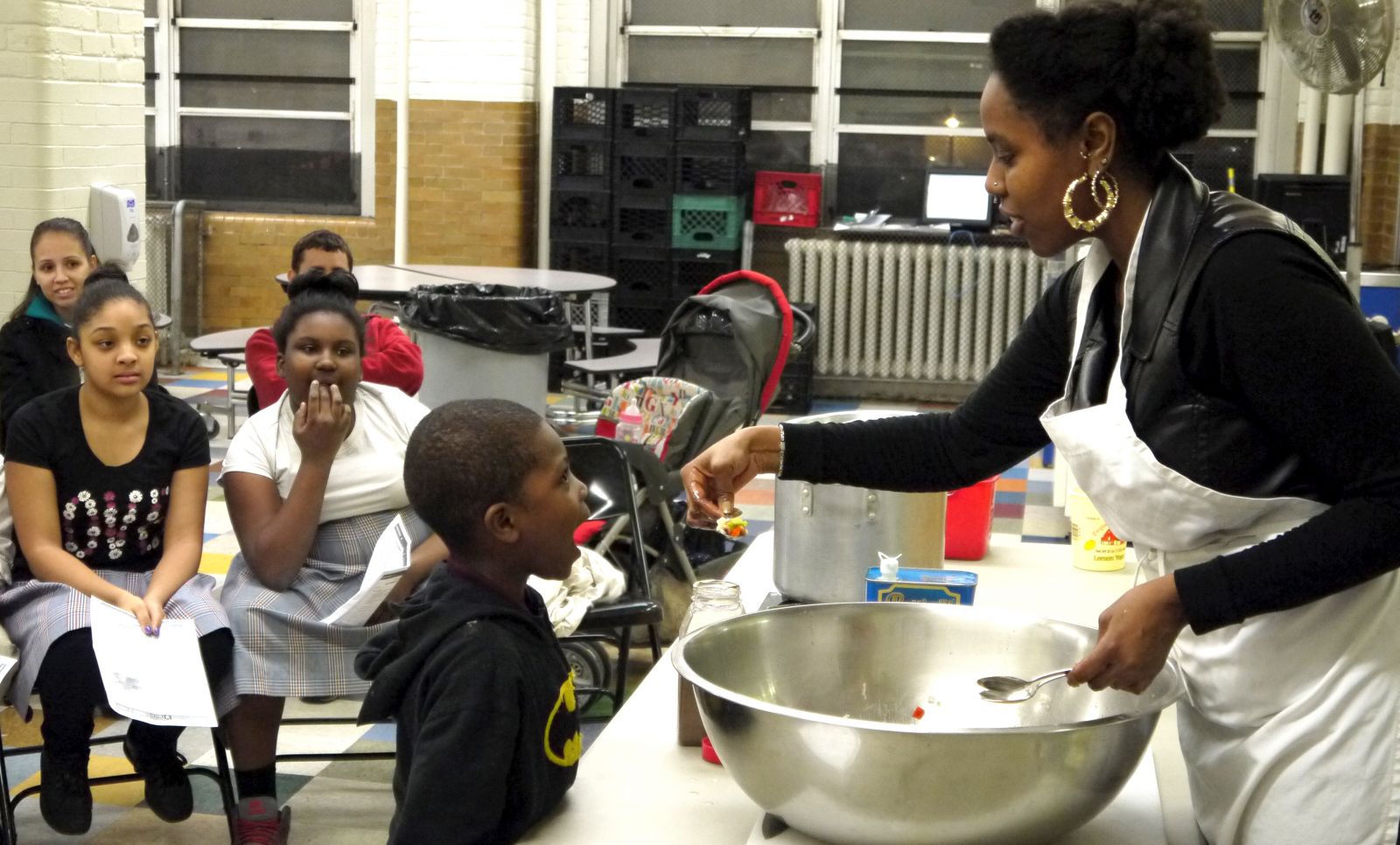When the scientists who created the Oldways Common Ground Consensus Statement crafted their point #10, they had multiple reasons for doing so. This tenth point states:
We support the cultivation of widespread food literacy and believe that individuals benefit from becoming knowledgeable about the origins of their food, the conditions under which it is produced, and its impact on their health and the health of the planet. A knowledge of and respect for food traditions and the cultural context of food health through heritage is also beneficial, and can be a powerful motivator for better eating, as well as a means of imparting crucial life skills (e.g., cooking).
The bottom line is health health of people, of the planet, of communities and of economies. Im happy to know that along with Oldways there are a number of organizations tackling food literacy through interesting initiatives and resources.
But first of all, what actually is food literacy And then, which people and organizations are making a push for food literacy, and therefore, improving the health of the planet and its people, communities and economies Here are just a few of those furthering this important cause:
The Food Literacy Center, a food education organization in Sacramento, California, focuses on teaching low-income elementary children cooking and nutrition. As befits their mission, they define food literacy as Understanding the impact of your food choices on your health, the environment, and our economy.
Nourish, an educational initiative designed to open a meaningful conversation about food and sustainability, particularly in schools and communities, reaches a broad range of people through its PBS Show, resources, curriculum, short films and seminars. They define food literacy as Understanding the story of our food from farm to table, and back to the soil and take the stand that when people are food literate, good things happen.
Harvard University Dining initiated The Food Literacy Project (FLP) in 2005 to cultivate an understanding of food from the ground up. The FLP hosts a fellowship program for students, and hosts experiential and academic events and opportunities throughout the year that are open to the Harvard and broader Cambridge-area communities. The ultimate goal is to promote enduring knowledge, enabling consumers to make informed food choices.
Grassroots efforts like those above are trickling up to the national level. The National Academy of Sciences held a two-day meeting in Washington this past September called Workshop on Food Literacy. Its purpose was to explore how commercial and public health messaging about food, nutrition, and food safety inform, influence, and impact the population at the individual, family, and community levels regarding food choices and behavior. The workshop looked at how social norms can change behavior and how we might apply commercial marketing practices to food literacy, among other key topics.
Public interest in food issues has been on the rise in Canada, too. A few years ago, the Conference Board of Canada put out a comprehensive report called Whats to Eat Improving Food Literacy in Canada. Among their recommendations: Food literacy should be incorporated into the curricula of all schools in Canada, at least up to a Grade 6 level, and that the government should foster parental involvement in hands-on experiential opportunities to develop food literacy. They believe improving food literacy in Canada will support better choices in diet and nutrition, and impart new skills leading to improved health and safety. In addition, improved food literacy will positively impact environmental sustainability. While good work has already been done, they know Canada still has considerable room to improve food literacy.
British food advocate Jamie Oliver is probably the most famous chef promoting food literacy. Jamies work in schools in the US and UK stems from his belief that fall kids should be given the opportunity to learn about food and good eating habits while theyre still young so that theyre sorted [prepared] for life. Oliver wants to make healthy food education a mandatory part of elementary curricula around the world.
Interested in knowing how food literate you really are Take the Food Day quiz about Food Literacy! Food Day, organized by CSPI (the Center for Science in the Public Interest), is an annual celebration on October 24, inspiring Americans to change their diets and our countrys food policies. Combining ideas from the first two organizations we cited, CSPI defines food literacy as: Understanding the story of ones food, from farm to table and back to the soil; the knowledge and ability to make informed choices that support ones health, community, and the environment.
Oldways has zeroed in on food literacy from Day 1. All of our programs whether they focus on heritage diets or ingredients like whole grains touch on the importance and relevance of the total food picture, from the field to the table, and the impact on the health of people, the planet, communities, and economies. Our curricula, High Five!, A Taste of African Heritage (photo on right), and the soon-to-be-introduced A Taste of Latin American Heritage, are especially wonderful examples of how food literacy can make a difference. And to go one step further, as noted by the Common Ground scientists, we’re thrilled to discover that culture and heritage are proving to be strong motivators for eating better. Its time for food education and food literacy to be priorities everywhere!
Sara Baer-Sinnott, Oldways President











Leave a comment